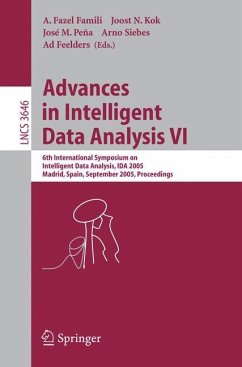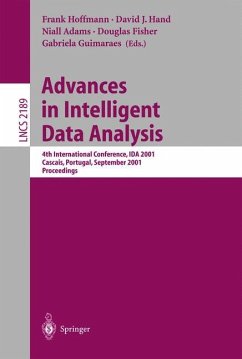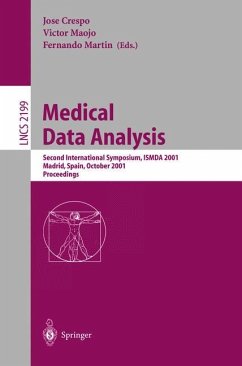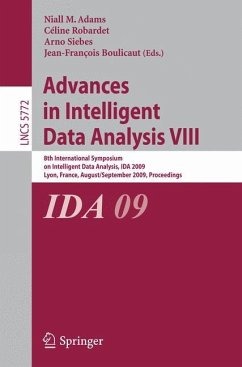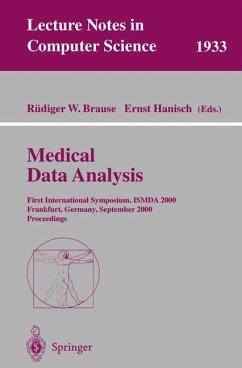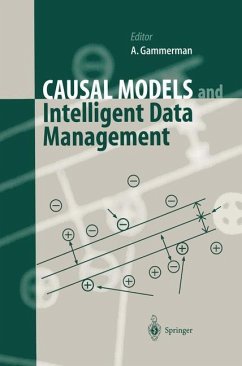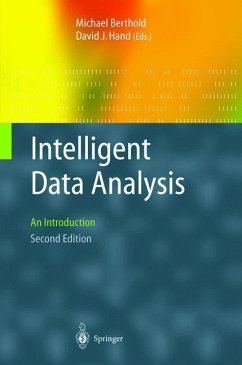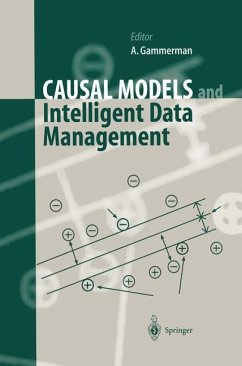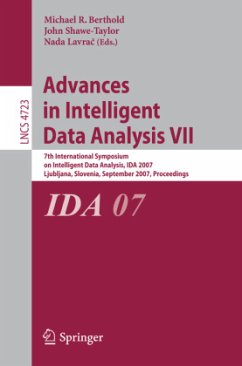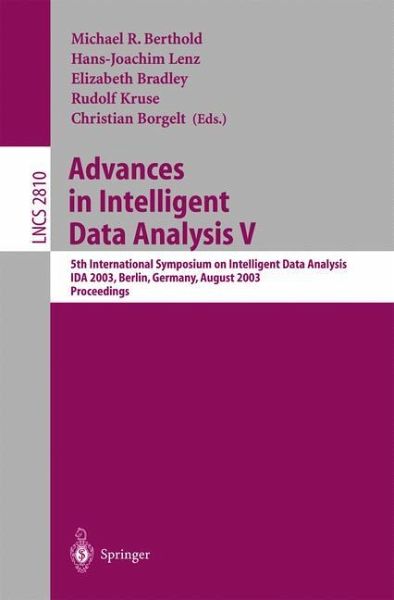
Advances in Intelligent Data Analysis V
5th International Symposium on Intelligent Data Analysis, IDA 2003, Berlin, Germany, August 28-30, 2003, Proceedings
Herausgegeben: Berthold, Michael R.; Lenz, Hans-Joachim; Bradley, Elizabeth; Kruse, Rudolf; Borgelt, Christian

PAYBACK Punkte
39 °P sammeln!
We are glad to present the proceedings of the 5th biennial conference in the Intelligent Data Analysis series. The conference took place in Berlin, Germany, August 28-30, 2003. IDA has by now clearly grown up. Started as a small si- symposium of a larger conference in 1995 in Baden-Baden (Germany) it quickly attractedmoreinterest(bothsubmission-andattendance-wise),andmovedfrom London (1997) to Amsterdam (1999), and two years ago to Lisbon. Submission ratesalongwiththeeverimprovingqualityofpapershaveenabledtheor- nizers to assemble increasingly consistent and high-quality programs. This year we...
We are glad to present the proceedings of the 5th biennial conference in the Intelligent Data Analysis series. The conference took place in Berlin, Germany, August 28-30, 2003. IDA has by now clearly grown up. Started as a small si- symposium of a larger conference in 1995 in Baden-Baden (Germany) it quickly attractedmoreinterest(bothsubmission-andattendance-wise),andmovedfrom London (1997) to Amsterdam (1999), and two years ago to Lisbon. Submission ratesalongwiththeeverimprovingqualityofpapershaveenabledtheor- nizers to assemble increasingly consistent and high-quality programs. This year we were again overwhelmed by yet another record-breaking submission rate of 180 papers. At the Program Chairs meeting we were - based on roughly 500 reviews - in the lucky position of carefully selecting 17 papers for oral and 42 for poster presentation. Poster presenters were given the opportunity to summarize their papers in 3-minute spotlight presentations. The oral, spotlight and poster presentations were then scheduled in a single-track, 2. 5-day conference program, summarized in this book. In accordance with the goal of IDA, "to bring together researchers from diverse disciplines," we achieved a nice balance of presentations from the more theoreticalside(bothstatisticsandcomputerscience)aswellasmoreapplicati- oriented areas that illustrate how these techniques can be used in practice. Work presented in these proceedings ranges from theoretical contributions dealing, for example, with data cleaning and compression all the way to papers addressing practical problems in the areas of text classi?cation and sales-rate predictions. A considerable number of papers also center around the currently so popular applications in bioinformatics.





